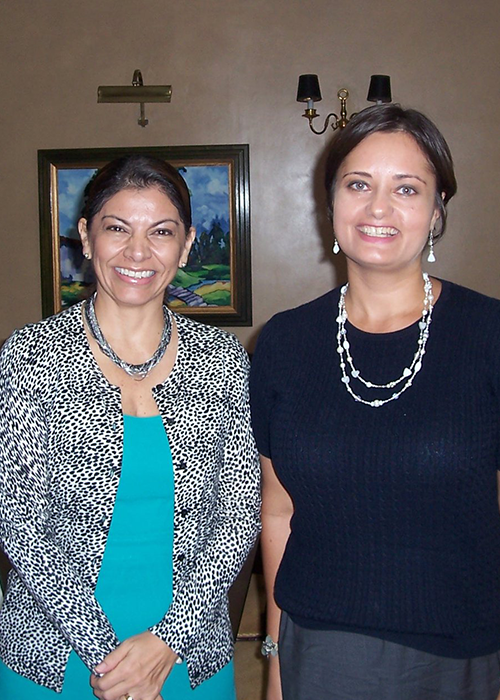
OSU professor releases research on females in power
Wednesday, May 9, 2018
An Oklahoma State University professor, known for her research on women and minorities, has released a collection of studies on female executives and their influence on the political empowerment of women.
Titled “Measuring Women’s Political Empowerment Across the Globe,” the research, which is co-edited by Dr. Farida Jalalzai and her colleagues, also examines the ways women in political power could help shape societies and whether women have equal capacity as men in achieving different goals.
Jalalzai, an internationally-known scholar for analyzing the representation and behavior of women and minorities in politics, is in her third academic year at OSU serving as the Hannah Atkins Endowed Chair and Interim Head of Political Science.
Her interest in women and minorities was inspired by her experience as a young woman visiting Pakistan, where her family is originally from. Jalalzai noticed the many limitations placed on women in education, employment and other areas. She also noticed that, though women in Pakistan faced these limitations, the country had a female prime minister, while the United States continually struggled to elect a female president.
With that in mind, Jalalzai insists the recent women’s movement in the U.S. is not about new issues.
“They’ve been going on forever and what is important is the recent momentum,” said Jalalzai. “The U.S. is at a moment in time when different marginalized groups, including women, are being more outspoken and this is something that speaks to people who would not have normally taken on an activist hat. People can do very simple things to make their voices heard and gain more momentum for their causes.”
In response to this momentum, Jalalzai wants her research to influence policy and be used by organizations to create change. Like many other scholars, she’s taken on the role of an activist by using the knowledge gained through her work to influence policy.
During her research on powerful women around the world, Jalalzai became fond of some of the female leaders she studied to the point that she came to admire them. Ellen Johnson Sirleaf, the president of Liberia, stood out to Jalalzai because she showed the ways a woman can be strong but also offer to be a peace builder to society.
“Motherhood is often linked to weakness,” said Jalalzai. “But Sirleaf’s image showed the positive aspect of being a nurturer by healing a society that endured conflict for years.”
In August 2012, Jalalzai met with Laura Chinchilla, president of Costa Rica and Latin America’s fifth woman president.
“I especially admired her ability to connect with others on a human level and her compassion for others,” Jalalzai said.
In the coming months, the researcher will continue work on her next project to examine the former president of Brazil, Dilma Rousseff, and what lead to her recent impeachment. Jalalzai plans to visit Brazil this summer to conduct more interviews and get a sense of the impact of gender roles on Brazilian society. She will work with Pedro dos Santos on a manuscript on their findings, which she expects to be published by May of 2019
In the meantime, “Measuring Women’s Political Empowerment across the Globe” is available from Springer International Publishing. Jalalzai’s co-editors included Amy Alexander from the University of Gothenburg in Sweden and Catherine Bolzendahl from the University of California in Irvine.
